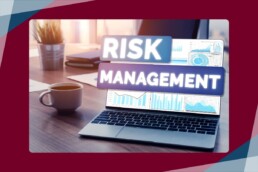What Do You Need to Know About High Risk Business Insurance?
Almost 30% of businesses in America fail due to the inability of the owner to get the right level of insurance. Sometimes, it can be hard to get affordable insurance options due to the business’s inherent risks, which can impact the company later. So, what are “high-risk business insurance” policies, and how can you ensure you mitigate said risks to reduce the cost of insurance?
Here, we offer answers to these questions and more, helping you work out how to prepare your organization for potential dangers.
Which Insurance Is Likely to Be “High-Risk”?
Several types of insurance for businesses are often deemed “high-risk.” They often see a higher likelihood of unpredictable events, leading to increased numbers of claims. Some of the more common ones include:
- Professional liability insurance
- Commercial auto insurance
- Workers’ compensation
- Cybersecurity insurance
Knowing which of these you need and learning how to reduce its risks can help you afford each moving forward.
How Do Insurance Companies Assess Risk?
When working out, if your business is high-risk, an insurance company will evaluate the nature of the organization. They will consider several factors, as high-risk companies often have similar traits.
Some of the factors they will consider include:
- A history of claims
- The financial health of the business
- The location of offices or holdings
- Any risk management in effect
- What underwriting guidelines suggest
- Whether they can insure at a higher price
At the end of the process, the insurance company will either refuse to insure the organization or increase their premium to match the risk. Occasionally, this can price a company out of buying insurance they need to continue business.
How Can You Lower Your Risk Profile?
Before looking into buying insurance, there are several things you can do to make sure you get the lowest risk assessment possible. This will ensure you get a better price and do not receive a denial to insure.
Ensuring Financial Stability
Insurers will ask to look at the company’s financial data, including forecasts and its history. If it looks like there may be a large loss incoming, or if it is difficult to predict the future of the industry, insurers may be hesitant to offer a better deal.
Securing Your Business Continuity
Having a detailed continuity plan can prevent disruptions that might stop a business from working. This means the insurer will not need to pay as much to compensate the company for losses.
Safety Measures and Employee Training
Enforcing safety practices means employees are less likely to seek injury compensation. Updating these often and ensuring workers receive training also helps to reduce the inherent risk to a company long-term.
Where to Get High-Risk Business Insurance
With the ability to reduce dangers to your business, high-risk business insurance might no longer be an issue for you. If it is, we may help make it more affordable for you so you can move forward with a weight off your shoulders.
Our Oliver L. E. Soden Agency insurance specialists can work with you to run you through your options. All you need to do is give us a call to start the process today.
Related Articles
A Business Owner’s Guide to Risk Management Insurance
In the United States, about 1 in 5 businesses fail within the first year of opening. Businesses fail for several reasons, like an unexpected death, a natural…
The Importance of EPLI Insurance
Businesses are facing unprecedented employment-related risks. Can employers require the COVID-19 vaccine? If your business can't bring all employees back on…


